- Jump to:
- Main features of the best South Africa Forex brokers
- Forex Legislation
- Financial Regulators
- Payment Methods
- Trading Software
- Mobile Trading
- FAQ
Our team of expert traders tested many regulated and trustworthy forex brokers that accept traders from South Africa and compiled a toplist with the best among them. Each broker operating in South Africa received a quality score based on several factors, including Trustpilot rating, regulation, fees and commissions, available trading platforms, customer service and more.
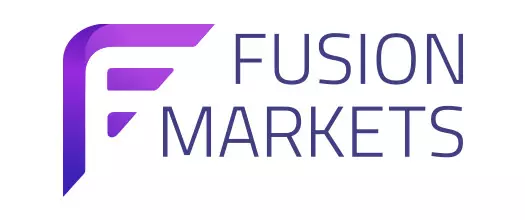 Fusion Markets74-89% of retail's CFD accounts lose money
Fusion Markets74-89% of retail's CFD accounts lose money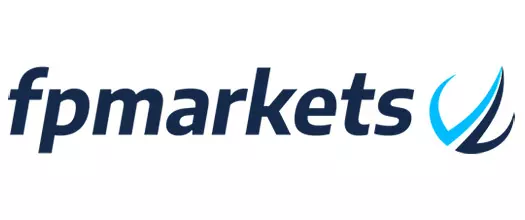 FP Markets73.85% of retail investor accounts lose money
FP Markets73.85% of retail investor accounts lose money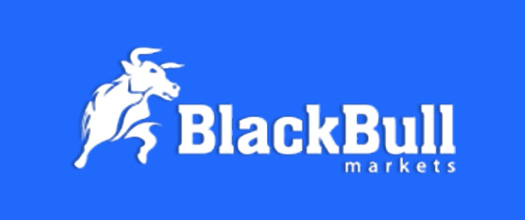 BlackBull MarketsTrading leveraged products is risky
BlackBull MarketsTrading leveraged products is risky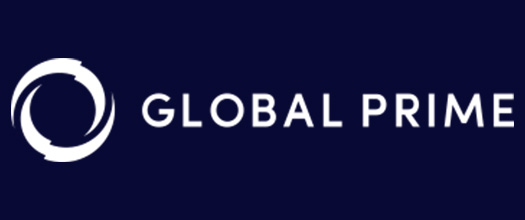 Global Prime74-89% of retail CFD accounts lose money
Global Prime74-89% of retail CFD accounts lose money Pepperstone75.5% of retail investor accounts lose money
Pepperstone75.5% of retail investor accounts lose money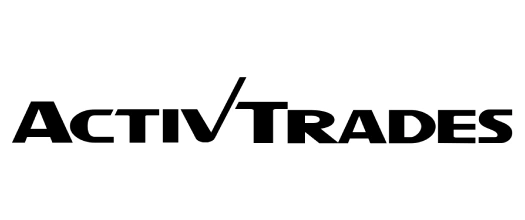 ActivTrades73% of retail investor accounts lose money
ActivTrades73% of retail investor accounts lose money
Below you can find a comprehensive comparison table of forex brokers for traders in South Africa. We rank them based on several factors including: regulation, spreads and commissions, Trustpilot rating, trading instruments, trading platforms, deposit and withdrawal methods.
Our team has thoroughly evaluated all brokers listed below using TradingPedia’s exclusive methodology.
Main features of the best South Africa Forex brokers
- Brand
- Trading platforms
- Minimum deposit
- Regulations
- Trading instruments
- Spreads
- Leverage for Forex CFDs
- Leverage for Crypto CFDs
- Leverage for Indices CFDs
- Deposit methods
- Withdrawal Methods
- Commission per Lot
- Contact details
The Republic of South Africa boasts one of the most developed economies on the African continent and is the only state in that region with a membership in the G20 international forum for economic cooperation. The country has a mature financial system largely controlled by the South African Reserve Bank. The latter is also responsible for the issuance and control of the South African rand (ZAR).
The local economy is strongly influenced by global conditions due to the country’s heavy reliance on foreign trade. Rich in natural resources, South Africa is a leading exporter of precious and base metals, with its main trading partners being Japan, China, Germany, and the United States.
Foreign exchange trading has become extremely popular with the locals in recent years, largely thanks to the liberal economic environment in the country. South Africa has the biggest retail Forex market on this continent, with a daily trading volume of over US$19 billion in 2017 according to information released by the Bank of International Settlements.
To draw a comparison, retail Forex traders from the continent’s second-largest market, Namibia, registered a daily trading volume amounting to one-tenth of that of South Africa for the same period. The local ZAR ranks as the twentieth most-traded currency on a global scale and is expected to improve further in the future.
With the tightening of Europe’s regulatory frameworks and the reduction in leverage caps, an increasing number of brokerages are beginning to show interest in the South African Forex market. The country has become an attractive destination for brokers looking to reduce their operational costs and expand their customer base.
South Africa Forex Legislation
Foreign exchange trading in South Africa is legal and enjoys increasing popularity among the residents. The Forex sector is supervised by the local regulator the Financial Services Conduct Authority (FSCA) whose primary purposes are to protect market participants, ensure fair trading conditions, and prevent illicit activities like money laundering.
Foreign brokerage firms must receive authorization from the FSCA before they can offer their services legally on South African soil. Brokers should cover the minimum capital requirements of the regulator and have registered offices in South Africa.
In addition to spot Forex, locals can also legally engage in over-the-counter transactions with derivatives. The sale of derivative products requires a special ODP (Over-the-Counter Derivative Provider) license from the FSCA.
Approved licensees can offer a broad range of derivative products, including foreign exchange, commodities, interest-rate, and equity derivatives. The provision of derivatives is regulated under the Financial Markets Act of 2012 which saw various amendments over the years.
The latest amendments of the Act were drafted in 2014 by the country’s Minister of Finance but came into effect several years later. ODPs must report all derivative transactions to a licensed trade repository. Licensed companies are under legal obligation to provide the local regulator with unhindered access to all transaction data.
This includes the type of derivatives, the underlying assets, the prices, the risk mitigation measures, and so on. The providers are expected to keep a diligent record of all derivative transactions they have handled over the last five years, counted from the day of the transactions’ termination.
Brokers dealing with leveraged derivatives like the contract for difference (CFD) must carefully assess their customers before they allow them to trade with such volatile products. South African investors also have the option to trade currency derivatives with the Johannesburg Stock Exchange.
While South Africa’s residents are not legally prosecuted for trading on offshore websites, it is always recommended to pick a broker that has local authorization from the FSCA. If you do insist on joining a foreign-licensed brokerage, you must at least ensure your company of choice is adequately regulated under the laws of a recognized jurisdiction like Cyprus, for example.
Another thing that bears consideration is the funding of one’s trading account, which is much easier for those who join FSCA-regulated brokerages. Those who trade with overseas brokers are recommended to open offshore bank accounts.
It would be easier to arrange a payment via a bank transfer than by using a locally issued credit card because of the complex laws that govern moving cash to institutions originating outside of South Africa. It is also important to ensure your broker, locally licensed or not, enables you to set up an account with ZAR as the base currency. Otherwise, you will be charged for the conversion.
South Africa Financial Regulators
The South African financial industry uses the Twin Peaks regulatory model. It is governed by several entities, following the reorganization of the previous regulator, the Financial Services Board (FSB). The FSB was split into two individual entities under the Financial Sector Regulation Act of August 2017. Each of them is mandated with different regulatory responsibilities.
The conduct of the financial companies operating in the country is overseen and regulated by the Financial Sector Conduct Authority of South Africa (FSCA). It supervises and controls entities that are licensed to provide financial products and services to the locals.
Some of the examples include insurance companies, brokerages, and retirement funds. The FSCA ensures all of these institutions operate in full compliance with the local regulatory framework. It has the power to issue and revoke licenses.
The dissolution of the FSB also gave rise to the South African Prudential Authority (PA). The primary mandate of this entity is to regulate non-bank financial institutions, including market infrastructures, cooperative financial institutions, and financial conglomerates.
Finally, there is the South African Reserve Bank (SARB), which commenced operations in March 1921, shortly after the enforcement of the Currency and Bank Act of August 1920. The chief mandate of the SARB is to ensure and consolidate the stability of the local financial markets.
It also supervises the local banking system, issues ZAR coinage and banknotes, and manages the gold and foreign exchange reserves of the country. The PA is a juristic entity that operates within the SARB administration.
South Africa Forex Payment Methods
Topping up your Forex trading account from South Africa is a relatively hassle-free process provided that you use a credit card or an account with a major local bank. With that said, the financial regulations in the country can sometimes get in the way if one attempts to top up an international account from their domestic bank account or by using a less-known credit card. Such issues occur with less frequency in recent years, though. The measures aim at reducing illegal activities such as money laundering.
Forex traders from South Africa should keep in mind there are restrictions on the amount of money they can transfer overseas. Each citizen of the country can move no more than R10 million overseas per year for the purposes of foreign investment. You need to file a tax clearance certificate for this. There is also a discretionary foreign currency allowance of up to R1 million, which does not require a tax clearance certificate.
Other than that, South Africa-friendly brokers accept a variety of widespread funding solutions you can use to transfer money to your live trading account. E-wallets like Skrill, PayPal, and Neteller are among the most convenient options. They can help you circumvent the issues that sometimes result from paying via credit cards or bank accounts. You only need to register, verify your account, top up your e-wallet balance, and you are good to go.
Some brokers that operate on this market enable South African traders to process payments with their local EasyEFT. This is a relatively new system for online payments that allows you to transfer money directly from your online banking account. The solution is low-cost, convenient, and does not require users to own any credit cards.
Depositing to your balance is extremely simple and quick with EasyEFT. All you have to do is log into your trading account, navigate to the payment system, and click on the method, if available. Then you should choose your bank from the list of supported financial institutions and follow the instructions to complete the payment process.
The money transfer is conducted via the online payment platform of your bank. This renders EasyEFT an exceptionally safe method to use at Forex trading sites. Some of the local banks that support the EasyEFT system include Capitec, FNB, ABSA, Standard Bank, and Investec.
Another advantage is that payments with EasyEFT can be conducted in ZAR. Some brokerages also work with other locally available methods like PayFast and PayU. Before you register with a broker, make sure it supports the banking solution you intend to use. Check whether any processing fees are in place.
Popular Trading Software in South Africa
One key benefit of doing business on the Forex markets is that you can trade any currency pair you want from the comfort of your home. You can open positions whenever you feel like it during business days. However, you need a good Forex software for this purpose. One key feature of a quality trading platform is its intuitive design.
The platform should be easy to use to accommodate traders from all experience levels. Complexity is not only annoying because it hinders navigation but it can also lead to trading mistakes. The golden rule is the simpler, the better. The platform should also support various tools for market analysis, with the option to open multiple windows on the same chart station. The availability of backtesting and multiple timeframes is always a major plus.
If you are unsure whether a given South African broker meets these criteria, you can always open a demo account. This way, you can test the trading software to see whether you feel comfortable with its interface and features.
The vast majority of South Africa brokers utilize the MetaTrader 4 platform. MT4 was officially launched back in 2005. The fact it remains in use to this day speaks volumes about its quality. The platform covers all of the criteria for quality we listed above.
There are many different timeframes and technical indicators for market analysis along with the option to review charts and post notes on them. The platform appeals to novice traders with its intuitiveness. Automated trading with the help of the so-called Expert Advisors is also possible.
Many South Africa brokers offer MT4 in combination with its successor, MetaTrader 5, which supports additional instruments like stocks, bonds, futures, and options. Either version is typically available in browser format via a dedicated WebTrader. The latter offers roughly the same functionalities as the downloadable software but does not require additional installation.
Mobile Trading in South Africa
South Africa has quite decent levels of mobile penetration. Around 22 million citizens are using smartphones as of 2019, which corresponds to approximately one-third of the entire population. This number is forecast to increase by several million in the years to follow. For reference, South Africa is home to over 58 million citizens as of 2020.
Investors from the country have a world of trading opportunities in the palms of their hands since all good brokers on the local market offer innovative mobile applications for iOS and Android devices. Furthermore, the apps can be downloaded at no cost, either from the website of the respective brokerage or from mobile content platforms like Google Play and the App Store.
There are plenty of benefits of taking your trading activities on the go. For one, the apps give you instant access to real-time feeds, allowing you to immediately spot the latest market trends. You simply need to reach into your pocket and pull out your phone to see all the current market prices.
The apps are optimized for use on touchscreen devices, making it exceptionally easier to place orders on the fly. There is usually the option to zoom in for all the details. Mobile traders also have the chance to manage multiple charts on their smartphones and tablets. Educational materials are commonly available to the benefit of beginner mobile traders.



